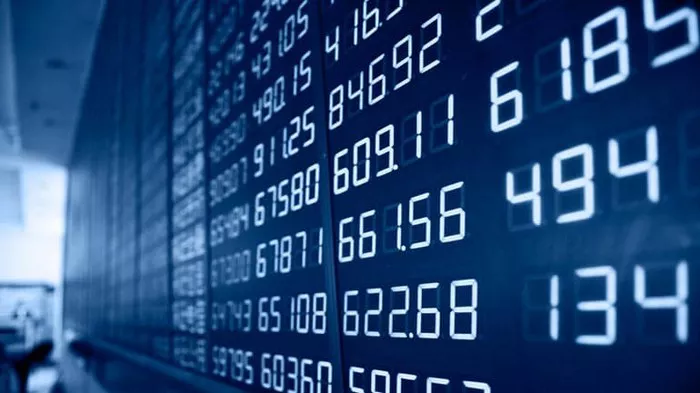In the realm of financial markets, futures trading stands as a prominent avenue for investors seeking exposure to diverse asset classes and opportunities for profit. However, for those new to the world of futures, the process of ordering and executing trades may seem daunting. Understanding how to order futures is crucial for navigating this market effectively and capitalizing on potential opportunities.
Understanding Futures: A Primer on Market Dynamics
Before delving into the intricacies of ordering futures, it is essential to grasp the fundamental principles underlying these financial instruments. Futures contracts represent agreements to buy or sell a specified asset at a predetermined price on a future date. These contracts are traded on organized exchanges, providing liquidity and price transparency to market participants. Futures markets cover a wide array of asset classes, including commodities, currencies, stock indices, and interest rates, offering investors diverse opportunities for trading and investment.
Choosing a Futures Brokerage: Accessing the Market
The first step in ordering futures is selecting a reputable brokerage firm that offers futures trading services. When choosing a brokerage, investors should consider factors such as commission rates, margin requirements, trading platforms, research tools, and customer support. It is crucial to opt for a brokerage that aligns with one’s trading objectives, risk tolerance, and level of experience. Additionally, ensuring that the brokerage is registered with relevant regulatory authorities provides an added layer of security and investor protection.
Opening a Futures Trading Account: Getting Started
Once a brokerage firm has been selected, investors must open a futures trading account to initiate trading activities. The account opening process typically involves completing an application form, providing identification documents, and funding the account with an initial deposit. Additionally, investors may need to undergo a suitability assessment to ensure that futures trading is appropriate for their financial circumstances and investment objectives. Upon approval, investors gain access to the brokerage’s trading platform, enabling them to place orders and execute trades in the futures market.
See Also: How do I get a futures trading account?
Placing a Futures Order: Executing Trades
With a trading account established, investors can proceed to place orders in the futures market. There are several types of orders that investors can utilize to enter and exit positions, each serving specific objectives and risk profiles. Market orders, for instance, are executed at the prevailing market price, providing immediacy but potentially exposing investors to price fluctuations. Limit orders, on the other hand, allow investors to specify the maximum price at which they are willing to buy or sell a futures contract, offering control over execution prices.
Managing Risk: Implementing Stop-Loss Orders
Risk management is a critical aspect of futures trading, and investors can mitigate potential losses by implementing stop-loss orders. A stop-loss order instructs the brokerage to automatically sell a futures contract if its price falls below a predetermined threshold, thereby limiting downside risk. By setting stop-loss levels based on predefined risk parameters and investment objectives, investors can protect their capital and minimize the impact of adverse market movements on their portfolio.
Monitoring Positions: Tracking Performance
Once orders have been placed and trades executed, investors must monitor their positions and track the performance of their futures holdings. This involves staying informed about market developments, monitoring price movements, and assessing the impact of macroeconomic factors on asset prices. Additionally, investors should regularly review their trading strategies, adjust position sizes as necessary, and consider taking profits or cutting losses based on changing market conditions.
Leveraging Analytical Tools: Making Informed Decisions
In the digital age, investors have access to a plethora of analytical tools and resources that can aid in decision-making and enhance trading performance. Technical analysis, for instance, involves studying price charts and patterns to identify trends and forecast future price movements. Fundamental analysis, on the other hand, focuses on evaluating the underlying factors driving asset prices, such as supply and demand dynamics, geopolitical events, and economic indicators. By leveraging these analytical tools in conjunction with market research and expert insights, investors can make informed decisions when ordering futures.
Embracing Education: Continuously Improving Skills
Lastly, continuous education and skill development are essential for success in futures trading. Markets are dynamic and ever-evolving, requiring investors to stay abreast of industry trends, regulatory developments, and emerging trading strategies. Engaging in educational activities such as online courses, seminars, and workshops can deepen investors’ understanding of futures markets and enhance their trading acumen. Additionally, learning from experience, analyzing past trades, and seeking feedback from peers and mentors can further refine investors’ skills and decision-making processes.
Conclusion
In conclusion, mastering the art of ordering futures is a foundational skill for investors seeking to participate in the dynamic world of financial markets. By understanding the mechanics of futures trading, selecting the right brokerage partner, and implementing effective risk management strategies, investors can navigate the complexities of futures markets with confidence. Whether seeking exposure to commodities, currencies, or stock indices, futures trading offers ample opportunities for profit and portfolio diversification. With diligence, discipline, and a commitment to continuous learning, investors can unlock the potential of futures trading and achieve their financial goals in an ever-changing market environment.


